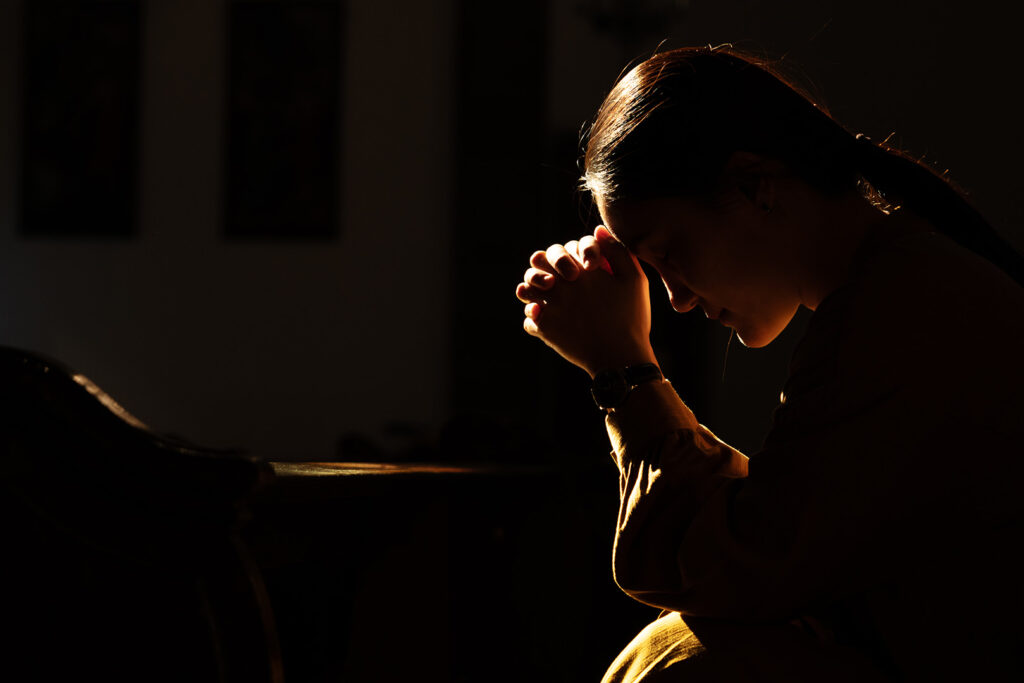Exorcism or spiritual counselling: Religion and mental illness
Exorcism or spiritual counselling: Religion and mental illness
Historically, mental illness was treated with prayer, exorcism, and reading the Bible. What role can religion play in today’s mental health care?
Mental illness: a supernatural affliction
Today, mental illness is largely viewed from a secular perspective. It is principally seen as a disease that is caused by biological, psychological, and environmental factors.[1]
Historically, however, mental illness was viewed as a supernatural affliction. In ancient Greek myths, for example, mental disorders were often portrayed as a result of supernatural intervention. The early Greeks believed that the mentally ill suffered from troubled moods and behaviours due to supernatural forces beyond their control. Similar narratives of mental illness can be found in Christianity and other religious traditions. Some religions explained mental illness as caused by spirit possession or demonic invasion, for example.[2]
Treatment of mental illnesses was often sought in spiritual means. Throughout history, protestants treated mental patients with prayer, reading the Bible, and spiritual counsel. Catholics performed masses and exorcisms to treat mental illnesses.[3] At present, the Catholic Church rarely uses exorcisms to treat people suffering from psychological disorders. Since 1999, it explicitly distinguishes between mental health disorders and afflictions that require an exorcism.
Nowadays, some religious denominations still perceive mental illnesses as spiritual diseases that can be cured solely by faith. This view reduces mental illness to a spiritual problem and hereby stigmatises suffering individuals.[4]
Mental health care and spirituality
Today, many religious actors recognise the importance of mental health care. In March 2023, representatives of various European churches met in Oxford to discuss the ongoing mental health crisis. The religious leaders that were present stated that “we need to work on our theology of mental health and play our role in building […] mutual care in our communities.”[5]
But mental health services throughout Europe remain largely secular. In European countries, mental health care is usually based on a combination of psychotherapy and psychiatric drugs.[6] With this secular approach to mental illness, Europe often leaves out the possibility of spiritual counselling.
A Dutch study shows that 50% of mentally ill patients in the Netherlands wish to receive spiritual counselling. Integrating spirituality into mental health care would allow them to discuss their beliefs and how they are affected by them.
Moreover, research suggests that religion and spirituality can have a positive impact on a person’s mental health. They offer purpose, structure, and coping skills that can help people manage symptoms of distress. In this way, incorporating spiritual and religious elements into treatment can help people who are suffering from mental illness.[7]
Religion and mental illness
Religion and spirituality run the risk of reducing mental illness to a spiritual problem. However, this does not mean that they should be excluded from mental health care altogether. There are many patients who could benefit from spiritual counselling, and religion could play a valuable part in mental health care.
Want to learn more about similar topics? Explore the EARS Dashboard
Sources
[1] Mental illness – Symptoms and causes
[4] Christian Over-Spiritualization of Mental Disorders
[5] European churches: credible hope in midst of crises






